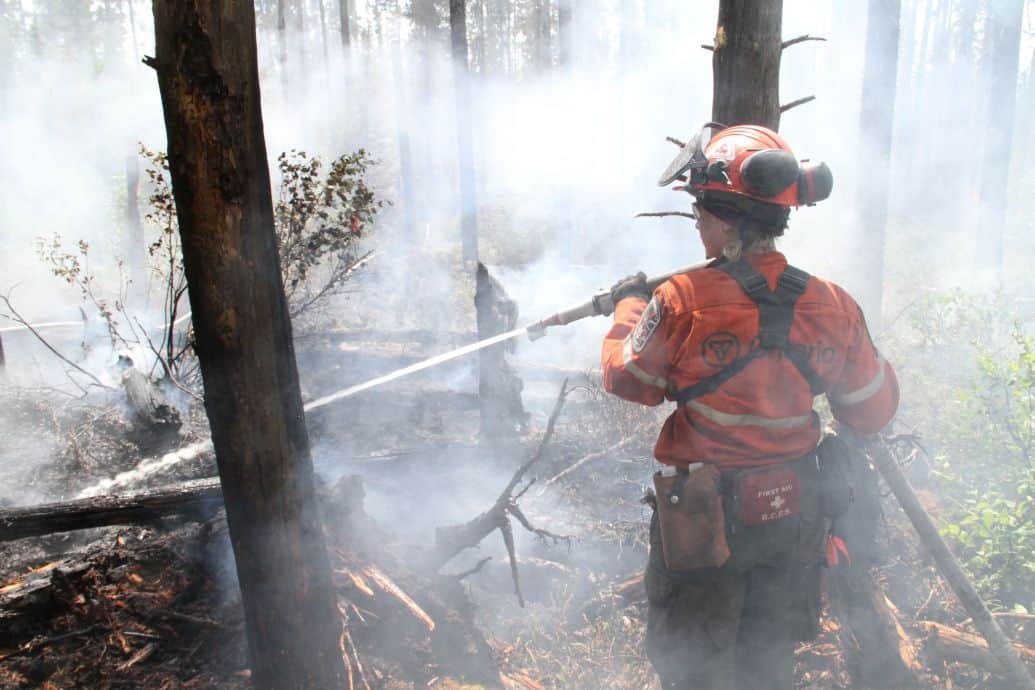Forest firefighters face huge health risks and want the Ford government to do more
Published March 4, 2024 at 1:25 pm

Over 60 forest fires were active in Ontario last fire season, which put a massive strain on the overall air quality nationwide. With summer a few months away, forest firefighters in Ontario are calling out the provincial government’s response to not only last year’s fires but also the safety of those who were putting them out.
In a recent media response hosted by the Ontario Public Service Employees Union (OPSEU/SEFPO), union representatives, forest firefighters and provincial NDP members took to task the PC government’s approach to the 2023 fire season and the safety standards for Ontario-based forest firefighters.
“The Ontario Government treats forest firefighters’ health as it does climate change, with a willful ignorance for scientific evidence,” said Noah Freedman, a veteran firefighter and Vice-President of OPSEU Local 703, in the official release.
According to the data provided by the OPSEU/SEFPO, forest firefighters — much like their city-based counterparts — are in an incredibly high-risk bracket for both cancer and heart disease.
However, unlike urban firefighters, when a forest firefighter states that a potential diagnosis may be work-related, the Workplace Safety and Insurance Board (WSIB) stalls any automatic recognition and forces the applicant to wait and navigate a substantial amount of red tape, according to the union.
“The Health and Safety document we filed with the government, and their response, is proof that they have been willfully ignorant and negligent for years, expecting that no one was paying attention. Some of us are still here, we are all dying, and we will no longer be silenced,” said Freedman in the release.
When contacted about these oversights, the provincial government was not shy in addressing how vital it is to make lasting changes surrounding protective policies.
“We work closely with the Ministry of Labour, Immigration, Training, and Skills Development and the WSIB to assess occupational health and safety matters, including coverage for our FireRangers under the Firefighters Regulations. Minister Piccini [Minister of Labour, Immigration, Training and Skills Development] has emphasized that our government is actively considering making these needed changes,” said a representative for the Ministry of Natural Resources and Forestry to insauga.com in an emailed response.
According to the documentation provided, forest firefighters do not receive adequate awareness training when it comes to the toxins they are exposed to on the job. The union says that despite numerous pleas from government representatives, forest firefighters are advised to cover their mouths and noses with dry cloths while on the job — an obsolete approach, according to the OPSEU/SEFPO.
Joint sentiments of the OPSEU/SEFPO and NDP representatives argue that better training and coverage must be provided before the 2024 fire season begins, with NDP MPP for Thunder Bay-Superior North Lise Vaugeois stating in the release that “Ontario is not building the expertise needed to fight the ever-growing fires coming because of the climate crisis and this year’s very dry winter.”
As for how the provincial government is planning to confront the 2024 fire season, preparation appears to be their first defence for the province.



